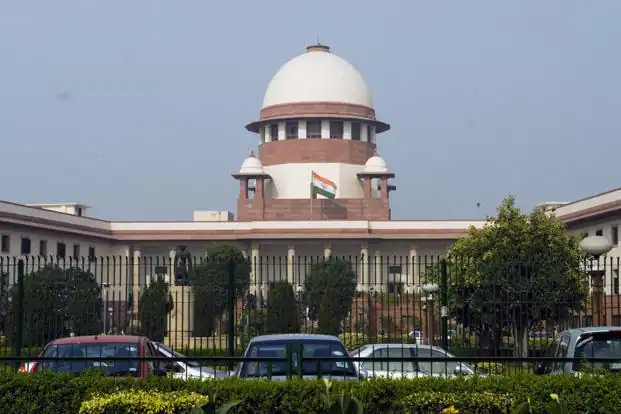Ahmedabad
(Head Office)Address : 506, 3rd EYE THREE (III), Opp. Induben Khakhrawala, Girish Cold Drink Cross Road, CG Road, Navrangpura, Ahmedabad, 380009.
Mobile : 8469231587 / 9586028957
Telephone : 079-40098991
E-mail: dics.upsc@gmail.com

Ordinances – Government’s power
News: On May 19, the central government promulgated an Ordinance that undid the unanimous verdict of a fivejudge Constitution Bench of the SC which gave AAP government of Delhi control over the transfer and posting of officials in the National Capital Territory (NCT), except with regard to public order, police, and land.
What is the Ordinance?
The Ordinance promulgated by President Droupadi Murmu gave the LG of Delhi, power over services, and established a “National Capital Civil Service Authority” comprising the Chief Minister and two senior IAS officials, which would decide matters “by majority of votes of the members present and voting” — essentially creating a situation in which the view of the elected CM could potentially be overruled.
What is Ordinance in Constitution?
Under Article 123 of the Constitution (“Power of President to promulgate Ordinances during recess of Parliament”), “if at any time, except when both Houses of Parliament are in session, the President is satisfied that circumstances exist which render it necessary for him to take immediate action, he may promulgate such Ordinances as the circumstances appear to him to require.”
An Ordinance “shall have the same force and effect as an Act of Parliament”.
But the government is required to bring an Ordinance before Parliament for ratification — and failure to do so will lead to its lapsing “at the expiration of six weeks from the reassembly of Parliament”
The Ordinance may lapse earlier if the President withdraws it — or if both Houses pass resolutions disapproving it.
What is Re-promulgation of Ordinance? What did Supreme Court observe in its context?
Krishna Kumar Singh and Another v. State of Bihar: If, for whatever reason, an Ordinance lapses, the only option for the government is to reissue or repromulgate it. In 2017, the Supreme Court examined a case where the state of Bihar re-promulgated an Ordinance several times without placing it before the legislature.
The Supreme Court held that the Governor's power to issue an Ordinance is an emergency power, and that repeated re-promulgations without bringing the Ordinance to the legislature would usurp the legislatures function and be unconstitutional. This was in violation of the SC judgment in Dr D C Wadhwa and Ors v. State of Bihar and Ors (1986).
A Constitution Bench of the Supreme Court headed by then CJI P N Bhagwati held that an Ordinance promulgated by the Governor to meet an emergent situation shall cease to be in operation at the expiration of six weeks from the reassembly of the Legislature.
If the government wishes for the Ordinance to continue in force beyond the six-week period, it “has to go before the Legislature”, which is the constitutional authority entrusted with law-making functions.

Address : 506, 3rd EYE THREE (III), Opp. Induben Khakhrawala, Girish Cold Drink Cross Road, CG Road, Navrangpura, Ahmedabad, 380009.
Mobile : 8469231587 / 9586028957
Telephone : 079-40098991
E-mail: dics.upsc@gmail.com
Address: A-306, The Landmark, Urjanagar-1, Opp. Spicy Street, Kudasan – Por Road, Kudasan, Gandhinagar – 382421
Mobile : 9723832444 / 9723932444
E-mail: dics.gnagar@gmail.com
Address: 2nd Floor, 9 Shivali Society, L&T Circle, opp. Ratri Bazar, Karelibaugh, Vadodara, 390018
Mobile : 9725692037 / 9725692054
E-mail: dics.vadodara@gmail.com
Address: 403, Raj Victoria, Opp. Pal Walkway, Near Galaxy Circle, Pal, Surat-394510
Mobile : 8401031583 / 8401031587
E-mail: dics.surat@gmail.com
Address: 303,305 K 158 Complex Above Magson, Sindhubhavan Road Ahmedabad-380059
Mobile : 9974751177 / 8469231587
E-mail: dicssbr@gmail.com
Address: 57/17, 2nd Floor, Old Rajinder Nagar Market, Bada Bazaar Marg, Delhi-60
Mobile : 9104830862 / 9104830865
E-mail: dics.newdelhi@gmail.com